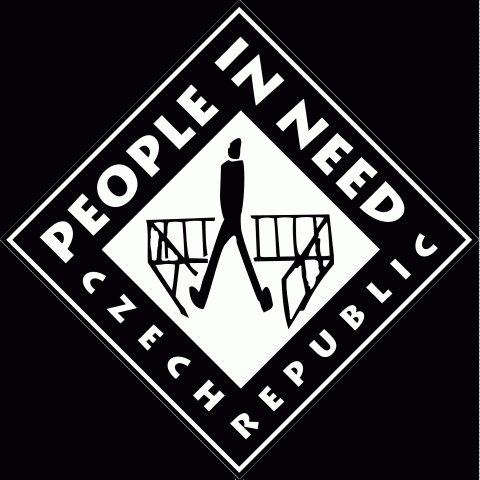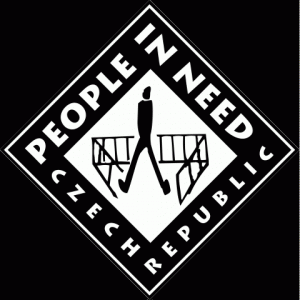A New Strategy to Battle Georgia’s Household Debt Crisis
People in Need, a Czech-based development organization that has been active in Georgia since 2005, is launching a new project to tackle the rising debt crises faced by everyday borrowers in Georgia.
Even in pre-COVID times, Georgian households suffered from high rates of debt and strong social stigmas that discourage public conversation around the topic. Yet this is a crisis hiding in plain view. An astounding 17 percent of all households report crushing debt as the main problem they face, according to a UNICEF report. A National Democratic Institute study finds that 50 percent of households to be indebted with 30 percent of households ranking “paying debts” among their highest household expenses.
Credit in Georgia is characterized by high interest rates and low flexibility. Liberal lending policies have helped spur economic growth and raised GDP, yet with consumer debt having increase 7.5 times in the last 10 years, many Georgian families have experienced an opposite trend in their own fortunes. A standard interest rate of 26 percent leaves many working not to support their household but to pay down interest, entrapping them in debt cycle that can also wipe out any equity they possess.
With the devasting economic impacts of COVID-19 having hit small businesses and low-to-medium income households hardest, this project which directly addresses these issues and is based in success in the Czech context, comes at a critical moment.
Following the turbulent 90s, people in the Czech Republic faced many financial problems as the result of new policies of deregulation. Like Georgia, many households were forced to suffer in silence thanks to social stigma attached to indebtedness. Kateřina Hůlová, People in Need’s Czech Debt Expert, says: "Ten years ago, there was no public and political interest in debt issues in the Czech Republic. The public opinion was that indebtedness only concerns the socially excluded, people with little education, gamblers, or drug addicts. When we raised the topic during the economic crisis and drew media attention toward predatory creditors and their scandalous rates and approach, it turned out that a huge number of middle-class people were indebted and that the topic was not so marginal after all.”
To combat indebtedness in the Czech Republic, People in Need developed a public advocacy strategy and toolkit. This programme proved highly effective showing it is possible to engage with policymakers to reduce predatory lending practices, raise public awareness, help rebuild personal finances, and reduce the number of people becoming impoverished, homeless, or incarcerated as a result of dire financial straits.
Inspired by its successful Czech experience, People in Need’s Georgia mission is now implementing a similar project to provide research, advocacy, and debt advice services to vulnerable Georgians. The programme’s goal will be to empower community actors to directly support indebted households, increase national public awareness of the topic, and provide evidence-based solutions and recommendations to improve the policy environment.
Adding to the economic stresses on Georgian households is the commonplace practice of taking out loans in US dollars instead of Georgian Lari in exchange for a lower interest rate. In effect, this puts all risks due to currency fluctuations on the borrower who as a rule are less informed about economic projections and risks. Desperate for any means to lower household costs, borrowers will often take on this risk and hope for the best, a choice that has proved devastating in recent years for many families as the Georgian Lari has seen steep devaluation.
For example, a household still owing money from a loan in USD in 2014 will in 2020 have seen the unpaid portion of their loan grow by a staggering 76 percent when converted into Lari.
Unfortunately, due to social stigma, which leads to underreporting and minimizes the public conversation, it can be difficult to grasp the scope and impact of debt in Georgia. The Tbilisi-based NGO Society and Banks revealed that during the past eight years, 20,000 homes were repossessed, with 65,000 people forced into homelessness or deeper poverty. This is likely just the tip of the iceberg.
This initiative has received vocal support from international actors knowledgeable about both contexts. Jonáš Háger, a representative from UNDP, said: "In the Czech Republic, PIN has gained wide recognition for its interventions in the area of debt. PIN helped thousands of individuals overcome problems caused by debt, and PIN’s efforts to prevent these situations in the first place is also remarkable. We are proud and excited that we can support the transfer of Czech expertise to Georgia, where the need for such a programme is high. We are looking forward to seeing the development and results of this ambitious, comprehensive, and truly inclusive initiative implemented under the Czech-UNDP Partnership for SDGs."
This project is implemented by PIN and the United Nations Development Programme (UNDP) through the Challenge Fund, with financial support from the Ministry of Foreign Affairs of the Czech Republic, and in partnership with GeoWel, an economic think tank with 11 years of experience in research and communication on economic and social issues affecting vulnerable communities in Georgia.
For more information or to get involved, please contact:
Eva Fernández Martín, Project Manager, People in Need, eva.fernandez@peopleinneed.cz












